Aud Egede-Nissen
Nacimiento : 1893-05-30, Bergen, Norway
Muerte : 1974-11-15
Historia
Aud Egede-Nissen was a Norwegian stage and screen actress, and producer. She made her acting debut on the Norwegian stage in 1911, appearing next in Norwegian director Bjørn Bjørnson's 1913 film "Scenens børn". She first moved to Denmark and later Bjørn Bjørnson invited her to Berlin, where there were opportunities in the rapidly expanding film industry.

Prestefruen
Trysil-Knut is a Norwegian film from 1942. Directed by veteran Rasmus Breistein and is a ski themed melodrama about the legendary skier Trysil-Knut from Trysil. He is a powerful patriot, who in the early 1800s prevent that a war breaks out between Norway and Sweden using his skiing skills. While that goes on Knut is also preparing a court case of fraud to determine the ownership of his fathers old farm.

Isabella Winge
The young unknown Hansen stays at a pension, where they await a charmer with the same name. When the other Hansen escapes, the police arrest the wrong man.

Production Manager
"Sinners in the Sun" - Eight young people decide to detach themselves from all moral prejudices in their love life. They travel to an idyllic island in the archipelago. A paradise is founded, based on a thesis that the great love is no more. Eroticism is their choice. The friends is strongly influenced by the ideas of Sigmund Freud.

Emma

Grete Elstad
The film tells the story of an ambitious young man, Tom, who loves Grete, daughter of the manager of the national railroads; but Grete's father prefers Lund, an upright and uptight army officer. To prove his worth, Tom organizes a daring robbery of the nightly Bergen Express in the hopes of outwitting his rival, who's been assigned to track down the thieves.

Miss Mabel Douglas
König der Mittelstürmer / King of the Centre Forwards refers with the name of its hero to the German soccer legend of the twenties: Tull Harder, star of the Hamburger Sport Verein (HSV). But the story itself is completely fictitious: The son of a trade company's director falls in love with the daughter of a big American oil magnat. But she suspects him to be only interested in her money. So she buys his father's company to take revenge on him. The son's true love is soccer, and from the very first moment the soccer fever is present throughout the film. It starts with pictures of a soccer game and even an apple or a crumpled up paper must serve as substitute for a ball. Whereas Die elf Teufel promotes soccer as "the sport of the century", König der Mittelstürmer shows the hero's father who still has to be convinced from its importance. He hates soccer and blames everybody to be "soccer crazy".

Schwester Veronika

Grete Gerson
Silent film social drama

Directed by Lupu Pick, who died far too young, it was billed as a melodrama about a ring of counterfeiters on its first screening in New York City. Pick plays with the already well-established conventions of the detective genre for maximum effect and humor.

Hanna

Gertrud Köhler
The story of a Berlin tenement and its inhabitants. A silent drama by Gerhard Lamprecht.

Ilse
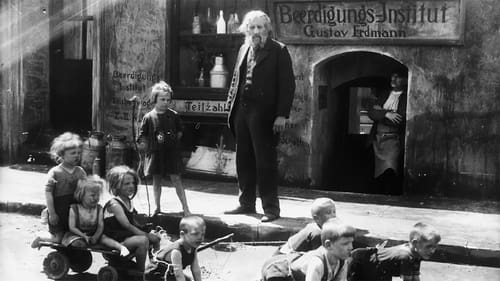
Emma
It was not just the children who were treated badly by the wealthy Weimar republic. Robert Kramer is released from prison but struggles to adjust to civilian life. His father disowns him out, his wife has left him for another man. There is no work. He eventually arrives in a shelter for the homeless, and seeks salvation through Emma, a prostitute.

Princess Eboli
Carlos y Elisabeth es una película dramática muda alemana de 1924 dirigida por Richard Oswald y protagonizada por Conrad Veidt

Ludmilla
A lost Murnau peasant-farm film.

Blanche Duval
Blanche Benton is out on her morning ride with horse and carriage, when an automobile shows up and scares the horse. The driver in the car manages to intervene and takes Blanche to her home.
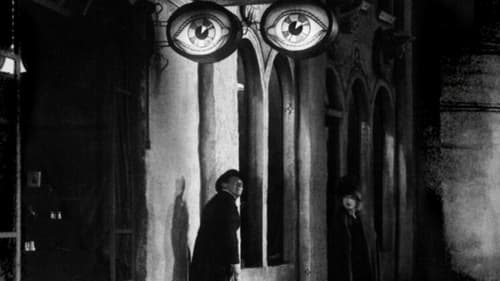
Dirne
La calle, es un testimonio directo de la crisis moral que atraviesa la nación alemana. Es la historia de un funcionario que se ahoga en su vida familiar y se siente irresistiblemente atraído por la vida nocturna donde es seducido por una joven. El drama se desarrolla en una sola noche en la cual, el protagonista es acusado de asesinato.
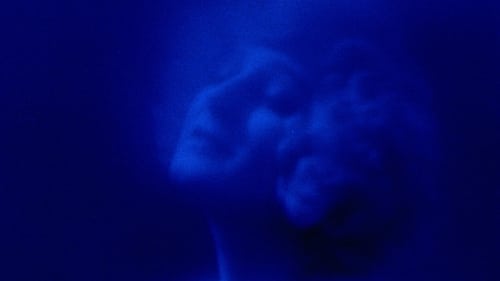
Melanie Lubota
Adaptación de una novela de Gerhart Hauptmann, que mediante la historia de amor no correspondido de un contable opone a la sordidez del mundo proletario y pequeño burgués con el ambiente cosmopolita de los ricos.
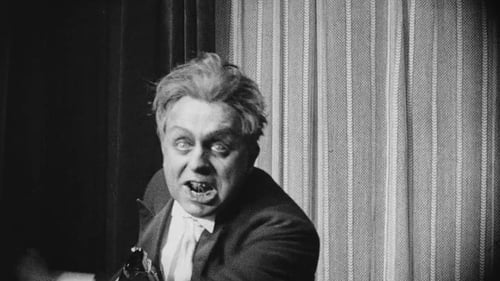
Cara Carozza
Mientras la policía intensifica su desconcertante búsqueda de la notoria banda de gánsteres del Dr. Mabuse, el engañoso y elusivo hipnotizador Mabuse comienza simultáneamente a encerrarse en sí mismo.

Cara Corozza
Doctor Mabuse is a criminal mastermind, doctor of psychology, and master of disguise, armed with the powers of hypnosis and mind control, who oversees the counterfeiting and gambling rackets of the Berlin underworld. He visits gambling dens by night under various guises and aliases, using the power of suggestion to win at cards and finance his plans.
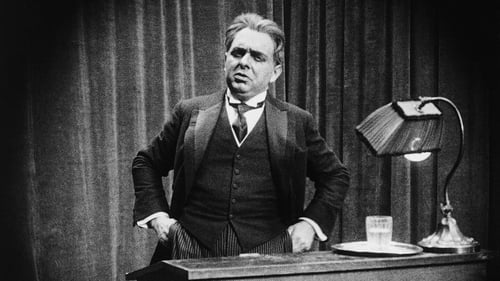
Cara Carozza
La primera versión cinematográfica del Dr. Mabuse consta de dos partes: “El gran jugador” y “El infierno”. El doctor Mabuse es un villano que no se siente atraído por los bienes materiales, sino por el placer que le proporciona jugar con el destino de los hombres.

Film by Carl Boese.

Ellen Esmond
The Maharaja of Odhapur goes on a trip to Europe and meet the young dancer Ellen Esmond. In her London accommodation, the Savoy Hotel, the Indian prince can prove to be a gallant gentleman and protect Ellen from an intrusive theatrical agent. The Maharaja asks the artist to entertain his guests the following evening with her dancing skills, including England's representatives in India. The maharaja is thrilled with both the person Ellen and her dance performances. His brother Bhima, who was always in the shadow of the Maharajah, drinks excessively and also is also magically attracted to Ellen Esmond.

The Closed Chain (German: Die geschlossene Kette) is a 1920 German silent film directed by Paul L. Stein and starring Pola Negri, Aud Egede-Nissen, and Carl Ebert.
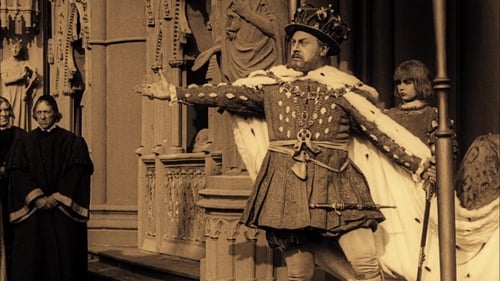
Jane Seymour
Suntuosa recreación histórica que fue calificada como 'la película más grande de todos los tiempos'. El Enrique VIII robusto, brutal y cruel de Emil Jannings contrasta con la inocencia de la Ana Bolena de Henny Porten. Dos arquitectos dirigieron la construcción de las réplicas de la Torre de Londres, el Castillo de Windsor y la Abadía de Westminster.
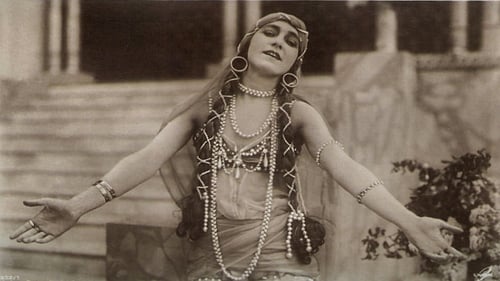
Haidee
Yeggar, un payaso jorobado, director de un espectáculo ambulante, se enamora de una de las bailarinas. Ella cede a sus deseos, pero también le es infiel. Basada en la pantomima teatral creada por Max Reinhardt, es un nuevo acercamiento al ambiente de cuento de hadas en parajes exóticos.

Producer
Produced by and starring Aud Egede-Nissen.

Produced by and starring Aud Egede-Nissen.

o. A.
A group of scientists, led by a Professor Ortmann, produce a living human child using scientific processes - a "homunculus." This creature is human in every way, except that he cannot experience love.

o. A.
For a long time the homunculus had to hide from his pursuers. But now he mingles with humanity again and sows discord, strife and murder. One day, when he meets an orphaned girl, he takes her to the shepherd Rudolf's parents. His goal is to pair the two together in order to breed a new human race from them. To this end, he kidnaps her to a deserted island. But the plan fails because Rudolf tries to kill the homunculus after learning his true identity. In revenge, the homunculus destroys the entire island, including the young couple. His hitherto loyal companion Edgar Rodin is so horrified by this deed that he renounces the homunculus and threatens him with death.

o. A.
Richard Ortmann the artificial man (Homunculus) has become the head of the corporation that represents the capital and power of the country, but he has stopped believing in human love. All the more clear is his goal now: the annihilation of mankind.

o. A.
The homunculus and his companion Edgar Rodin make an invention that would allow the hateful homunculus to destroy the world. But first he wants to find out about love. When he observes how young Anna is rejected by her parents, he takes care of her and asks her parents for forgiveness - without success. He brings her to her seducer, who also rejects the girl. The homunculus then takes revenge by ruining the man financially and throwing Anna at his feet. But she still loves the villain and asks Homunculus for mercy. The homunculus cannot understand this feeling of love - he wants to try it out on himself. He puts a young woman who loves him to the hardest test, but she will do anything for him, sacrificing her fiancé and her parents. Only when he reveals his artificial nature to her, she leaves him. This experience confirms the homunculus in his intention to destroy mankind.

o. A.

o. A.
Part of the artificial-creature series encompassing Der Golem (1914 and 1920), Alraune (1918, 1928, 1930) and Metropolis (1926), 'Homunculus' was the most popular serial in Germany during World War I even influencing the dress of fashionable Berlin. Foenss, a Danish star, is the perfect creature manufactured in a laboratory by Kuehne. Having discovered his origins, that he has no 'soul' and is incapable of love, he revenges himself on mankind, instigating revolutions and becoming a monstrous but beautiful tyrant, relentlessly pursued by his creator-father who seeks to rectify his mistake.

Christine Daaé
Das Phantom der Oper was a 1916 silent film. The film, also known as Das Gespenst im Opernhaus, is notable for being the first film adaptation of the 1910 novel The Phantom of the Opera by Gaston Leroux. The film is now believed to be a lost film. No copies, photographs or even a poster of the film remain. All that is known is that it was made in Germany in autumn 1915, directed by Ernst Matray, starring Nils Chrisander as the Phantom and Aud Egede-Nissen as Christine, and Raul played by director Ernst Matray.[1]









